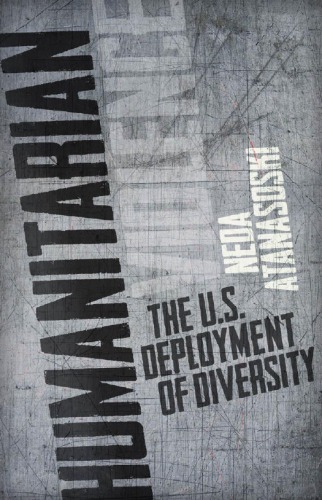Product desciption
Humanitarian Violence The Us Deployment Of Diversity Neda Atanasoski by Neda Atanasoski 9780816680931, 9780816680948, 0816680930, 0816680949 instant download after payment.
Exploring the transition from the old imperialism based on race to the new imperialism based on diversity
When is a war not a war? When it is undertaken in the name of democracy, against the forces of racism, sexism, and religious and political persecution? This is the new world of warfare that Neda Atanasoski observes in Humanitarian Violence, different in name from the old imperialism but not so different in kind. In particular, she considers U.S. militarism—humanitarian militarism — during the Vietnam War, the Soviet-Afghan War, and the 1990s wars of secession in the former Yugoslavia.
What this book brings to light—through novels, travel narratives, photojournalism, films, news media, and political rhetoric—is in fact a system of postsocialist imperialism based on humanitarian ethics. In the fiction of the United States as a multicultural haven, which morally underwrites the nation’s equally brutal waging of war and making of peace, parts of the world are subject to the violence of U.S. power because they are portrayed to be homogeneous and racially, religiously, and sexually intolerant—and thus permanently in need of reform. The entangled notions of humanity and atrocity that follow from such mediations of war and crisis have refigured conceptions of racial and religious freedom in the post–Cold War era. The resulting cultural narratives, Atanasoski suggests, tend to racialize ideological differences—whereas previous forms of imperialism racialized bodies. In place of the European racial imperialism, U.S. settler colonialism, and pre–civil rights racial constructions that associated racial difference with a devaluing of nonwhite bodies, Humanitarian Violence identifies an emerging discourse of race that focuses on ideological and cultural differences and makes postsocialist and Islamic nations the potential targets of U.S. disciplining violence.
With clear and astute arguments that are executed with force and lucidity, Neda Atanasoski offers a wonderfully rich comparative study of postsocialist regions whose histories have been intertwined in various ways with American discursive and material practices and politics. The sustained focus on these kinds of U.S. historical impulses and their complex connections to Eastern Europe is a highly original and a much-needed intervention.
— Katarzyna Marciniak, Ohio University
Humanitarian Violence is transnational and interdisciplinary scholarship at its best. It offers a much needed deeper look at the constitution of the modern West, while at the same time convincingly arguing for the continued importance of literary analysis and suggesting ways in which this analysis can be related to visual genres such as photojournalism, film, and digital art.
— Fatima El-Tayeb, University of California, San Diego
Humanitarian Violence provides much needed theoretical and historical insights into our perpetual state of war. Disregarding the false belief that U.S. is now a “postracial” society or the most democratizing force on earth, this lucid text demonstrates how a nation founded on universal ideas of life, liberty and freedom remains mired in inextricable forms of humanitarian violence.
— darkmatter Journal


